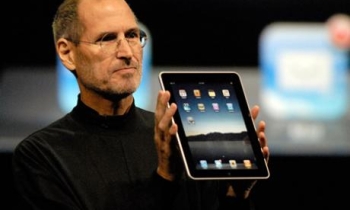I THOUGHT IT WAS only in fairy tales that Cinderella married a prince, but now handsome suitors are lining up to court the once-derided, much-maligned AOL.
Who would have guessed? AOL's very name was such an embarrassment that it was ignominiously stripped from the media and entertainment entity it helped create, AOL Time Warner. Now the dowdy dial-up Internet service, long overshadowed by the flashy step sisters Yahoo! (YHOO), Google (GOOG) and Microsoft's (MSFT) MSN, is the object of affection from all three, if a flurry of recent press reports can be believed. Gerald Levin, the ousted and much-lambasted former Time Warner (TWX) chief executive who helped orchestrate the merger of AOL and Time Warner, and Steve Case, AOL's former chairman, must be experiencing a rare moment of satisfaction.
What has caused such a sudden about-face? The answer is that many mysteries of the Internet age are rapidly being resolved, and several of these outcomes have had the result of resurrecting both AOL's image and its business prospects.
The first of these is sheer numbers. Despite the longstanding predictions of AOL's demise at the hands of high-speed Internet providers, AOL is delivering an audience. It had 110 million unique visitors in September, according to comScore Media Metrix, ranking second in the Internet hierarchy. I'm not an AOL subscriber myself, but I know people who are, and I understand why they haven't fled, even those who have switched to high-speed providers. One factor is their AOL email address, which they're reluctant to change. Another is instant messaging, and the large community of users who rely on it. And some users have discovered what seems to be one of the best-kept secrets of the Internet: AOL's dial-up service isn't all that slow anymore. I don't know what technology they're using, but I tried it myself, and it was pretty fast. So all those doomsday predictions were wrong. AOL may still be losing subscribers, but it's not dying.
Another factor favoring AOL is that the Internet has clearly moved toward a network television model, which offers free content supported by advertising, rather than a fee-based cable television model. Time Warner may have been slow to realize this, but paid Internet content is a niche business. Since AOL made the switch to free content, its numbers have grown and so have its advertising revenues. And like television networks, the market seems likely to support only a handful of dominant players. Yahoo and Microsoft have already staked out the biggest shares, with more specialized Google and eBay (EBAY) also attracting enormous numbers of individual users. AOL has suddenly found itself in the enviable position of offering what might be the only other viable content portal, particularly if Rupert Murdoch's new Internet endeavors don't pan out the way he hopes.
Also benefiting AOL is the historic shift in advertising dollars from traditional media to the Internet. The Internet offers as dramatic and effective a medium as television while offering a precise measure of impact that no other media can rival. Advertisers know how many and which users respond to their messages. No wonder AOL's own campaign to boost visits to the newly free portal focused heavily on Internet advertising rather than traditional media.
And finally there's the intense rivalry and jockeying for position among AOL's richer, more successful rivals. None of them wants the other to get AOL. This is especially true for Google, whose recent SEC registration disclosed that AOL is Google's largest customer. Should Microsoft get AOL, that revenue could evaporate overnight. More recently reports have circulated that Yahoo was talking to AOL, which may make sense as a defensive strategy. Why should Yahoo stand by while a Microsoft or Google uses AOL to challenge its dominance?
Just how much AOL might be worth in this new environment is hard to say. I've seen $20 billion bandied about, but that seems arbitrary. What's clear is that AOL, recently written off as all but worthless, is not only worth something, but possibly quite a lot. Assign a multiple on AOL's revenues last year of $7.5 billion like Yahoo's (11.5) or Google (20) and you get an eye-popping range of $86 billion to $150 billion. That's more than the $85 billion market capitalization for all of Time Warner, including AOL.
I'm not going to go that far, but even if you come up with a much lower number, don't you think that this would be unmitigated good news for Time Warner? And yet there sits Time Warner stock, dead in the water at barely $18 a share.
I've expressed my frustration over Time Warner's share price before, noting that by my calculations Time Warner is worth more than $18 a share even if you value AOL at zero. (I still own some long-term call options that have gone nowhere.) Unlike Carl Icahn, the corporate raider turned shareholder activist who's been prodding Time Warner management, I think CEO Richard Parsons has been doing a good job under trying conditions. The problem seems to be investors, so burned by the AOL merger that no one wants to touch the stock. I've often said that the market's perception and reality can take a long time to coincide, and this seems to be an example.
How this will play out is anybody's guess. I think that AOL is more valuable to Google, Microsoft or Yahoo than it is imbedded in Time Warner. But it makes no sense to me to split AOL into content and delivery halves, and if I were Parsons, I'd make the suitors bid for the whole thing. I'd also keep a stake so that Time Warner shareholders retain some upside potential. For that matter, why doesn't one of these suitors just buy all of Time Warner, keep AOL and whatever else it wants, and sell or spin off the rest? They all have the wherewithal, and with Time Warner at $18 a share, I don't think the idea is so farfetched.
But you don't have to be an investment banker to recognize value here. Time Warner shares may be a bargain now, but I don't believe they will be forever. Despite their sluggish performance so far, I plan to add to my position.









